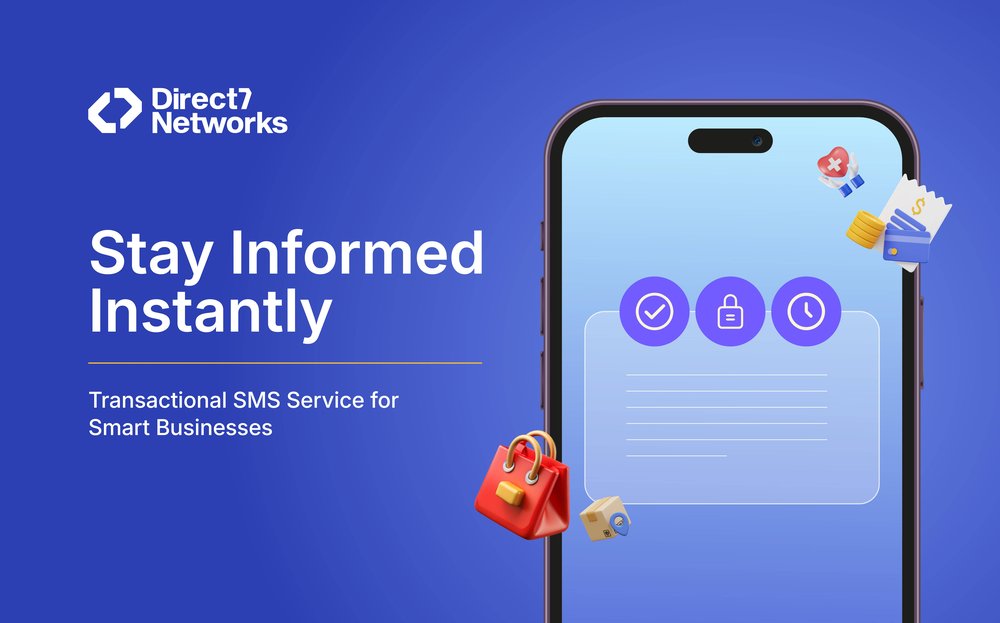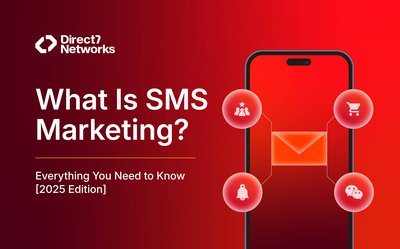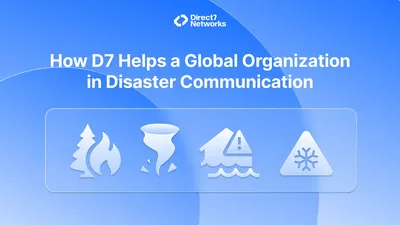
Stay Informed with Transactional SMS Service: Instant Updates, Secure Transactions
Transactional SMS services promptly deliver essential notifications and critical information to individuals, prioritizing time-sensitive updates triggered by specific actions or events. Unlike promotional SMS, which aims for marketing purposes, transactional SMS focuses on enhancing operational efficiency and customer engagement through reliable communication.
A transactional SMS service promptly delivers essential notifications and critical updates to individuals, ensuring secure, real-time communication. Unlike promotional SMS, which focuses on marketing, transactional SMS enhances customer experience and operational efficiency by delivering time-sensitive alerts triggered by specific actions or events.
In today’s fast-paced digital world, businesses need a reliable communication channel to improve customer engagement and streamline operations. One of the most efficient and impactful tools is a transactional SMS service. This guide explores what it is, the types of messages it includes, and how businesses can benefit from using it
What is a Transactional SMS Service?
A transactional SMS service enables businesses to send important, non-promotional messages triggered by user actions. These messages are automated and are designed to provide timely information such as order confirmations, security alerts, or appointment reminders.
Unlike promotional SMS, which aims to market a product or service, transactional messages are strictly informational. They are sent to inform customers about actions they’ve taken or need to take, often adhering to strict regulatory standards to ensure compliance and avoid misuse.
Types of Messages Sent via Transactional SMS Service
Understanding the various kinds of transactional SMS is a great way to assist businesses in leveraging this type of communication efficiently. Here are a few commonly used types:
Order Confirmations and Updates
When a customer makes an order, they will receive an SMS confirmation. The transactional SMS usually contains information like the order number, the description of the item, and the estimated delivery date. In addition, notifications regarding the status of the order, such as shipping notifications -- are sent to keep customers updated during the entire purchasing process.
One-Time Passwords (OTPs)
OTPs are codes sent to users by SMS to verify specific actions, such as the login process, transaction attempts, or account settings. Transactional SMS improves security by ensuring that only authorized users have access to sensitive data or perform transactions.
Account and Billing Notifications
Businesses often use transactional SMS to convey essential account details. These include updates on billing as well as subscription renewals or notifications regarding changes to the status of accounts. Through timely notification, companies can assist customers to keep track of their accounts and avoid unwelcome surprise charges.
Appointment Reminders and Alerts
For service-oriented companies like salons, health care providers, and fitness centers, transactional SMS is a great tool for sending reminders and notifications of appointments. The messages can help clients remember future appointments, decreasing the chance of missing appointments and increasing satisfaction overall.
Security Alerts
In the digital age, security is an essential issue for both businesses and users. Online platforms and financial institutions use transactional SMS to warn clients of suspicious actions such as unauthorized login attempts or account breaches. These alerts protect customers' information and increase confidence within the organization.
Delivery and Service Alerts
Transactional SMS is typically used to notify customers of delivery status or services that have been completed. For example, delivery companies may send messages to inform customers about the delivery of their parcel, and service providers may verify that the job is completed.
Want to leverage order confirmations, OTPs, and security alerts for your business? Get started with D7 Networks and see how transactional SMS can work for you.
Benefits of Using a Transactional SMS Service
There are many benefits of utilizing transactions-based SMS, which makes it a powerful instrument for businesses. Here are the top advantages:
Timely and Reliable Communication
Transactional SMS ensures that important information is sent to customers quickly. Whether it's an order update or a Security alert, SMS messages offer real-time notifications and help businesses keep their customers informed.
Enhanced Security
With features like OTPs or security warnings, transactional SMS greatly improves the safety of Internet transactions. This additional layer of security can prevent unauthorized access to sensitive information about customers and creates a sense of security.
24/7 Availability
Transactional SMS messages can be sent anytime, unlike promotional messages, which are limited to specific times. This 24/7 capability guarantees that users receive important information when they need it.
High Open Rates
Text messages are more open than emails because people are more likely to read them more frequently. This means that clients are more likely to send time-sensitive messages, which boosts engagement.
Customer Trust and Engagement
With prompt updates and security messages, Businesses can increase trust and improve customer satisfaction. This will result in increased loyalty and increased repeat business.
Automation and Efficiency
Automated transactional SMS could be used, allowing companies to improve communication efficiency without manual intervention. This can drastically reduce operational costs and increase response speed.
Conformity to Regulations
Transactional SMS is in line with industry standards, assisting businesses in keeping their legal obligations in check while sharing crucial information. Following these rules not only safeguards customers but can also boost the business's image.
Key Features of a Reliable Transactional SMS Service
Transactional SMS is a tool that has distinct advantages that make it a powerful communications tool for companies:
Automated Messaging
Transparent SMS can be triggered using triggers specific to the situation, such as user actions or system events. Automating ensures timely communications without the need for manual input from employees.
Real-Time Delivery
These messages are typically sent in real-time, which allows companies to deliver instant information to their customers. This speed is vital for time-sensitive information, like OTPs and order confirmations.
Personalization
Transactional SMS can be customized to include customers' names, details about orders, and other pertinent information. This customization enhances the user experience and makes communication more relevant.
Two-Way Communication
Although transactional SMS is mostly used to send details, it is also able to enable customers to respond. For instance, customers may confirm appointments or provide feedback via SMS.
Compliance with Regulations
Transactional SMS has to adhere to specific rules that govern commercial messages. This ensures that customers will only receive messages they've opted to receive while also guaranteeing their privacy.
Tracking and Analytics
Many SMS service providers provide tracking and analytics options that allow companies to track the quality of the messages delivered, open rates, and customer interaction. These data are valuable in determining the best strategy for future communication.
Multi-Channel Integration
Transactional SMS can be integrated into various platforms, including CRM systems, online shopping websites, and customer support tools. This allows for the seamless exchange of data across platforms.
Scalability
Transactional SMS solutions are able to expand to meet ever-growing business requirements. If you are sending thousands or hundreds of messages, businesses are able to modify their SMS strategies without major infrastructure changes.
Global Reach
Transactional SMS allows businesses to reach customers across various countries and regions, making it an efficient device for businesses with an international customer base. This is especially important for businesses that want to maintain communications with international customers.
How to Implement Transactional SMS Services For Business Communication?
Get Updates on Online Shopping:
When you place an order for an item at an online store, you receive a text message to confirm your purchase and announce an estimated date for delivery. When the item is delivered, you will receive the details of your shipment and a tracking number.
If you log into the bank's account online, your bank will send you an SMS Transactional SMS with a single-time password (OTP) to provide another security precaution. This OTP is required to carry out the transaction or other action you have initiated. Additionally, if you have any recent transactions using a debit card, the bank will send you a transaction alert by SMS in order to inform you immediately.
When you book a flight online, you will receive a text message with the details of your flight and the departure gate. The airline then sends you a text reminder on the day before your flight to remind you of your travel plans.
If you schedule an appointment for a dental visit online, the dental office immediately texts you to confirm your appointment, including the time, date, and location of your appointment. The confirmation will ensure that you have all the necessary information in your possession.
As the date of your appointment approaches, typically the day before, the dental office will text you a reminder. This text message will help ensure that you are aware of the date of your appointment and permit any necessary adjustments to your appointment timetable. This is a great way for a dental office to help you stay organized and prepared for the appointment.
Instantly Get Updates on Food Delivery:
If you place takeaway orders via an app that provides food, you'll receive an email that confirms the order's details and estimates the delivery time. This confirmation will assure you that you are provided with the correct details about the food you ordered and when you can anticipate it.
When the restaurant has finished cooking your meal, your food delivery company will send another text message to inform you that your food has been placed and is being transported. The text message is immediate and lets you know that your food is going to be delivered to your house. This is a great way for delivery companies to keep you updated and excited about your upcoming dinner.
Ready to streamline your messaging with automated SMS? Sign up with D7 Networks and automate your communications effortlessly.
How to Send Transactional Text Messages
Sending transactional text messages involves several steps to make sure that messages are delivered within the rules. Here's a step-by-step guide to help you through:
Choose an SMS Service Provider
Choose a reliable SMS service provider that specializes in transactional messaging. Consider features like scaling, automation, compliance with regulations, and tracking features. Some of the most popular providers are D7 Networks, Twilio and Nexmo.
Register Your Business
The majority of SMS services require companies to sign up prior to sending messages. The process usually involves checking your company's information and getting an ID for the sender, which is the number or name that appears on the recipient's mobile.
Integrate your systems with Your Systems.
To make transactions more efficient, you can incorporate the SMS service into your existing platforms, such as websites, CRMs, or an e-commerce platform. This integration lets you send automated messages triggered by specific events, such as customer registrations or sales.
Set Up Triggers and Templates
Set the triggers to send transactional SMS messages, such as order confirmations, OTP requests, appointments, or other reminder messages. Make templates for each kind of text to guarantee the consistency and clarity of your messages.
Collect Opt-Ins
Check to see if you've received your customers' explicit consent to send transaction-related SMS. This is essential for complying with laws like the Telephone Consumer Protection Act (TCPA) in the United States. Opt-ins can be collected during the registration process or via other interactions with customers.
Test Your Messages
Before sending transactional SMS messages to customers, conduct a thorough test. Make sure that the messages are sent properly, the formatting remains consistent, and the triggers function as they were intended. This will help prevent any issues from occurring and provide a smooth experience for customers.
Monitor Delivery and Engagement
When you begin making transactional SMS available, you should monitor the delivery rate and open rates, as well as engagement, of your customers using the statistics provided by the SMS supplier. These data will aid you in making informed choices about your messaging strategy and help you optimize future messaging.
Maintain Compliance
Check all SMS texts to make sure that they meet the requirements. Change your opt-in process if required, and make sure that your customers have the option to choose not to receive texts if they decide to opt-out.
Key Differences Between Promotional and Transactional SMS Strategies
Understanding the difference between transactional and promotional SMS is essential for companies seeking to communicate effectively with their clients. Here are the key distinctions:
Purpose of Communication
Promotional SMS:
The goal is to advertise products such as services or special deals. These messages are created to entice customers, increase sales, and draw attention to a company's website or physical place of business.
Transactional SMS:
The principal goal is to communicate important information relating to a specific customer's action or incident. These messages are usually driven by user actions and are used to notify customers about updates, orders, or security notices.
Content-Type
Promotional SMS:
Content may include advertisements, promotional offers, discounts, launches of new products, and other special events. These messages tend to be focused on marketing and are intended to convince customers to act.
Transactional SMS:
The content is simple and, informative, and easy to understand, including order confirmations, account alerts, delivery notifications, and OTPs. The main focus is to provide important information to help customers navigate their interactions with businesses.
Regulatory Compliance
Promotional SMS:
The messages they send are subject to more stringent rules, which require firms to obtain the explicit consent of clients before distributing marketing messages. Opt-in is essential to prevent legal consequences.
Transactional SMS:
Although also regulated in some cases, the regulations are more relaxed because the messages are deemed to be necessary to fulfill a transaction. The majority of customers expect transactions-related SMS when they interact with a company.
Frequency and Timing
Promotional SMS:
The frequency of messages can be varied and is often dependent on sales events or marketing campaigns. It is vital to choose the right time, as companies aim to deliver these messages at the right time to maximize engagement.
Transactional SMS:
The messages are delivered in real-time and are triggered by specific actions like the purchase or change of account. The timing is determined by the user's interactions instead of a schedule for marketing.
Response Expectation
Promotional SMS:
The companies expect their customers to respond to offers by clicking on a link and purchasing or redeeming coupons. Their conversion rates typically determine the effectiveness of these ads.
Transactional SMS:
While responses aren't clearly expected, transactional SMS can include confirmation requests (e.g., "Reply with 'YES' to confirm your appointment"). The effectiveness of a transaction is assessed by the rate of delivery and how well customers interact by using the information provided.
Customer Relationship Focus
Promotional SMS:
The primary focus is making sales and creating awareness of the brand. The messages are usually less personal and may be delivered to a large public.
Transactional SMS:
The emphasis is on providing excellent customer service and improving the experience for customers. These messages are usually customized based on the user's choices and actions, which helps to build confidence.
Conclusion
Transactional SMS is a crucial part of modern-day business communications and offers customers vital information about their transactions. By understanding the various types of transactional SMS, their benefits, and the key features and differences from promotions, companies can make the most of this type of communication to boost customer satisfaction and engagement. Planning the implementation of transactional SMS will ultimately increase customer loyalty and provide a better likelihood of success for your business.
Take your business to the next level with reliable, secure, and efficient transactional SMS solutions. Explore D7 Networks to see how we can help!



